The concept of thin-walled
spiral steel tube: the strip steel is fed into the welded pipe unit, rolled by multiple rollers, and the strip is gradually rolled up to form a circular tube blank with an opening gap, and the reduced amount of the extrusion roller is adjusted to make the welding seam gap. Control it at 1~3mm, and make both ends of the welding port flush.
1. If the gap is too large, the proximity effect will be reduced, the eddy current heat will be insufficient, and the intergranular bonding of the weld will be poor, resulting in unfused or cracked.
2. If the gap is too small, the proximity effect will increase, the welding heat will be too large, and the welding seam will be burned; or the welding seam will form a deep pit after extrusion and rolling, which will affect the surface quality of the welding seam.
After the two edges of the tube blank are heated to the welding temperature, under the extrusion of the extrusion roller, the common metal grains are formed to penetrate and crystallize each other, and finally, a firm weld is formed. If the extrusion force of the spiral steel pipe is too small, the number of common crystals formed will be small, the strength of the weld metal will decrease, and cracks will occur after being stressed; if the extrusion force is too large, the molten metal will be squeezed out of the weld seam. It not only reduces the strength of the weld, but also produces a large number of internal and external burrs, and even causes defects such as welding laps.
Application of thin-walled spiral steel tube: National standard spiral steel tube is mainly used in tap water engineering, the petrochemical industry, the chemical industry, the electric power industry, agricultural irrigation, and urban construction, and is one of the 20 key products developed in my country. For liquid transportation: water supply, drainage. For gas transportation: gas, steam, liquefied petroleum gas. For structure: for piling pipe, for bridge; for wharf, road, building structure, etc.
Thick-walled spiral steel tube concept: refers to the spiral steel tube whose wall thickness is slightly thicker than that of an ordinary spiral steel tube. Compared with ordinary wall-thickness spiral steel tubes, the advantages are high compressive strength, high impact strength, high safety performance, and longer service life. There are 5037, 9711, and API for implementation standards.
Thick-walled spiral steel tube forming process:
1. Before the spiral steel tube is formed: spiral steel tube adopts the advanced double-sided submerged arc welding production process, which can be welded at the position, and it is not easy to have defects such as misalignment, welding deviation, and incomplete penetration, and it is easy to control the welding quality and position. The spiral steel tube adopts a special welding process, which can be welded at the welding position without any errors and defects, which can ensure the qualification of the spiral steel tube, and the quality is well guaranteed.
2. During the forming of the spiral steel tube: During the forming process of the spiral steel tube, the steel plate should be uniformly deformed, the residual stress should be small, and the surface should not be scratched. The processed spiral steel tube has greater flexibility in the size and specification range of diameter and wall thickness, especially in the production of high-grade steel-grade thick-walled pipes, especially small and medium-diameter thick-walled pipes. Users have more requirements on the specifications of the spiral steel tube. The diameter and size specification range of the spiral steel tube should be flexibly grasped, and the extensive needs of more users should be used to make use of its advantages so that the spiral steel tube can be popularized and promoted.
The development direction of thick-walled spiral steel tube:
With the development of industry, higher requirements are put forward for the use of spiral steel tubes in engineering. The reason for the emergence of thick-walled spiral steel tubes is that the pressure generated by some of the media to be transported cannot be tolerated by ordinary spiral steel tubes. Straight seam steel pipe or seamless steel pipe will greatly increase the cost of the project. If it is a dangerous medium, we will inevitably increase the cost. Therefore, when selecting the pipeline, it is based on the medium and the pressure generated by the medium to be transported by the project. decided.
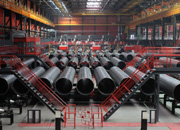 Threeway Steel is known as a professional supplier engaged in manufacturing and distributing a wide range of steel pipe, and our headquarter located the central part of China – Hunan and six associated factories throughout China.
Threeway Steel is known as a professional supplier engaged in manufacturing and distributing a wide range of steel pipe, and our headquarter located the central part of China – Hunan and six associated factories throughout China.
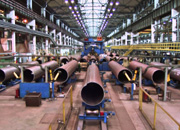 Threeway Steel is known as a professional supplier engaged in designing, manufacturing and distribution of a wide range of steel products with the headquarter located the central part of China – Hunan and six associated factories throughout China.
Threeway Steel is known as a professional supplier engaged in designing, manufacturing and distribution of a wide range of steel products with the headquarter located the central part of China – Hunan and six associated factories throughout China.
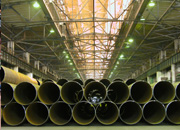 Threeway Steel is known as a professional supplier engaged in designing, manufacturing and distribution of a wide range of steel products with the headquarter located the central part of China – Hunan and six associated factories throughout China.
Threeway Steel is known as a professional supplier engaged in designing, manufacturing and distribution of a wide range of steel products with the headquarter located the central part of China – Hunan and six associated factories throughout China.
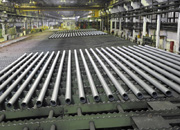 Threeway Steel is known as a professional supplier engaged in designing, manufacturing and distribution of a wide range of steel products with the headquarter located the central part of China – Hunan and six associated factories throughout China.
Threeway Steel is known as a professional supplier engaged in designing, manufacturing and distribution of a wide range of steel products with the headquarter located the central part of China – Hunan and six associated factories throughout China.
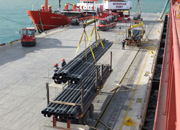 Threeway Steel is known as a professional supplier engaged in designing, manufacturing and distribution of a wide range of steel products with the headquarter located the central part of China – Hunan and six associated factories throughout China.
Threeway Steel is known as a professional supplier engaged in designing, manufacturing and distribution of a wide range of steel products with the headquarter located the central part of China – Hunan and six associated factories throughout China.

